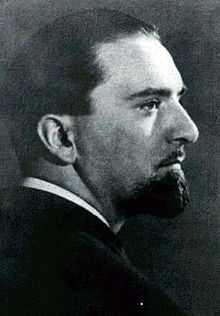Background
He was born on June 4, 1895 at Mordano, province of Bologna.


He was born on June 4, 1895 at Mordano, province of Bologna.
Grandi studied at the University of Bologna.
After distinguished service in the Italian army during World War I, he became leader of the Fascists in Emilia and the Romagna - an apt pupil of Mussolini in the use of violence as a political instrument. He assisted as a quadrumvir in the March on Rome (1922), was a member of the Fascist Grand Council from its inception, and held numerous high positions during the Fascist era.
He served as Italian representative in the League of Nations Assembly (1925 - 1928), as minister of foreign affairs (1929 - 1932), and then as ambassador in London (1932 - 1939), where he was very successful in promoting Tory good-will toward Fascism during the period of the Ethiopian War and of Italian intervention in the Spanish Civil War.
In 1939 he was made president of the Camera dei Fasci e delle Corporazioni, the Fascist substitute for the Chamber of Deputies.
When in July 1943, the King, the Duke d'Acquarone, and Generals Ambrosio and Castellano were planning to arrest Mussolini, Grandi got wind of the plot. He led a revolt within the Grand Council and secured a majority for his motion calling for a return to constitutional government (July 25). The king dismissed Mussolini, but Grandi's hopes to be called to take over the government along with Count Ciano and Federzoni were disappointed for the king summoned Marshal Badoglio as head of the government.
Grandi left for Portugal during the summer and a few months later found himself proscribed by both sides: for Fascist crimes by the regular government, and for treason by the Fascist "Social Republic. " Tried in his absence by the National Purge Commission after World War II, he was acquitted on December 1, 1947. He later returned to Italy.
